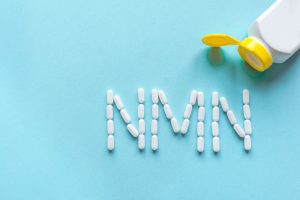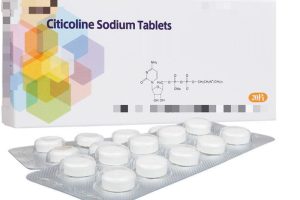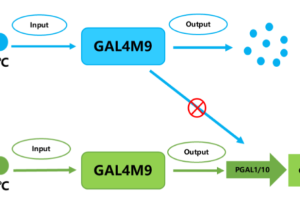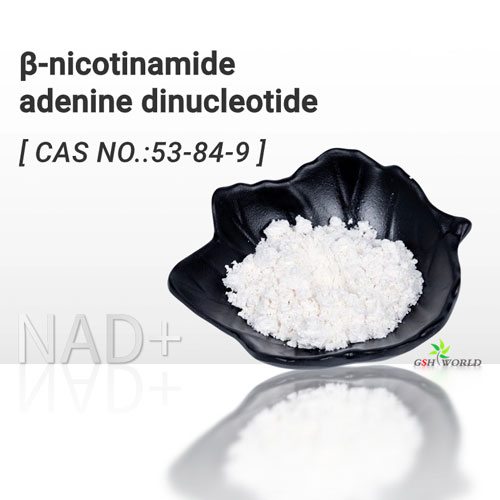How important is NAD+to our human body? Let’s start with some numbers to illustrate.
Our body is composed of approximately 37 trillion cells, and each of your 37 trillion cells relies on NAD+to complete its’ job ‘and sustain itself.
Without NAD+, your heart will not be able to pump blood through veins;
Your lungs do not inhale any air, and the neurons in your brain are not stimulated.
Without this key molecule, no important organ in your body would function.
NAD+is like the oil in your car, it keeps your engine running smoothly.
David Sinclair, co director of the Center for Aging Biology at Harvard Medical School, believes that NAD+is the most important substance for maintaining youthfulness in the human body and one of the essential molecules for sustaining life. Without it, a person would die within 30 seconds.
What is NAD+?
First, let’s understand the core concept of NAD. NAD, Nicotinamide adenine dinucleotide, abbreviated as nicotinamide adenine dinucleotide in Chinese, is a coenzyme (an essential factor that assists various enzymes in catalyzing redox reactions) responsible for electron transfer in the human body,
NAD is divided into two forms based on whether it carries the transferred electrons: NAD+and NADH. NADH is the reduced form, while NAD+is the oxidized form.
NAD+and NADH are like two sides of a coin, very similar yet absolutely irreplaceable.
The difference between the two is that the latter has one more H carrying a positive charge and two more electrons carrying a negative charge than the former.

The two can be converted into each other in the human body, so NAD+is usually referred to as NAD+instead of NAD.
NAD+, also known as Coenzyme 1 or nicotinamide adenine dinucleotide, is widely distributed in all cells of the human body and participates in thousands of biocatalytic reactions. It is an essential coenzyme in the human body.
Changes in NAD+levels may determine changes in other important bodily functions and are closely related to aging.
The important role of NAD+in the human body
1. Participate in energy metabolism
NAD+is a key molecule in cellular energy metabolism. It plays a crucial role in the tricarboxylic acid cycle, promoting the conversion of nutrients such as glucose, fat, and protein into the energy required by cells – adenosine triphosphate (ATP).
Adequate NAD+levels can ensure that cells efficiently produce energy and maintain the normal functioning of various organs and tissues in the body.
Maintain genomic stability
DNA damage is an important factor leading to aging and many diseases. NAD+participates in the DNA repair process, activating an enzyme called PARP (poly ADP ribose polymerase), which can recognize and repair damaged DNA.
By maintaining genomic stability, NAD+helps reduce the risk of developing cancer, neurodegenerative diseases, and other conditions.
2. Regulating the biological clock
The biological clock of the human body is crucial for health, as it affects multiple physiological processes such as sleep, metabolism, and immunity.
NAD+plays an important role in regulating the biological clock by activating clock genes and maintaining normal circadian rhythms.
As age increases, NAD+levels decrease, which may lead to disruption of the biological clock and subsequently affect sleep quality and physical health.
3. Enhance immunity
The normal function of the immune system depends on the activity of immune cells. NAD+can enhance the activity of immune cells and improve the body’s immunity.

It can promote the proliferation and differentiation of immune cells such as macrophages and natural killer cells, enhancing their ability to engulf pathogens and kill cancer cells.
Reasons for the decline of NAD+levels in the human body with age
1. Weakened synthesis ability
As people age, their ability to synthesize NAD+gradually decreases.
The synthesis of NAD+requires various precursor substances, such as tryptophan, niacin, nicotinamide, etc.
Aging may lead to reduced absorption and utilization of these precursor substances, as well as decreased enzyme activity in synthesizing NAD+, resulting in a decrease in NAD+levels.

2. Increased consumption
During the aging process, the body faces more oxidative stress and DNA damage, which requires the consumption of more NAD+for repair.
Chronic inflammation and unhealthy lifestyles such as smoking, alcohol abuse, and high sugar and high-fat diets can also increase the consumption of NAD+.
The hazards of decreased NAD+levels
The level of NAD+in the body determines the speed of the aging process.
Changes in the homeostasis of NAD+can be found in almost all age-related diseases (including neurodegenerative diseases, diabetes and cancer).
Chini et al. pointed out in their review “NAD Mechanism: Role in Cellular Aging and Aging” that NAD metabolic dysfunction is one of the important symptoms and risk factors of cardiovascular disease. Reduced NAD+levels will affect the energy supply to the heart, thereby disrupting its pumping function.
In age-related diseases such as cancer, short telomere syndrome, and fibrosis, NAD+- related metabolic disorders are also important pathological mechanisms.
Low NAD+levels will damage normal DNA, interfere with protein synthesis, induce mitochondrial dysfunction, and promote cellular aging processes.
In 2019, the textbook “Biochemistry and Cell Biology of Aging” summarized decades of aging research and attributed the aging mechanism to two main causes: oxidative free radical damage and decreased NAD+levels.
Numerous studies have shown that the decrease in NAD+levels is causally related to many age-related diseases, including cognitive decline, inflammation, cancer, metabolic disorders, sarcopenia, neurodegenerative diseases, and more.
However, it is worth noting that many of these age-related diseases can be slowed down or even reversed by restoring NAD+levels.
The benefits of additional NAD+supplementation
1. Delaying aging
By supplementing NAD+, it is possible to improve cellular energy metabolism, maintain genomic stability, regulate the biological clock, enhance immunity, and thus delay the aging process.
Many studies have shown that supplementing NAD+can prolong the lifespan of animals and improve their health status.
2. Improve health status
For people with chronic diseases, supplementing NAD+may help improve disease symptoms.
In neurodegenerative diseases such as Alzheimer’s disease and Parkinson’s disease, NAD+can promote the survival and functional recovery of neurons;
In cardiovascular diseases, NAD+can improve the energy metabolism of myocardial cells and enhance cardiac function;
In diabetes, NAD+can regulate blood glucose level and improve insulin sensitivity.
3. Improve athletic ability
Supplementing NAD+can improve the energy metabolism level of muscle cells, enhance muscle strength and endurance.
For the elderly and athletes, this may help improve athletic ability and reduce sports injuries.












